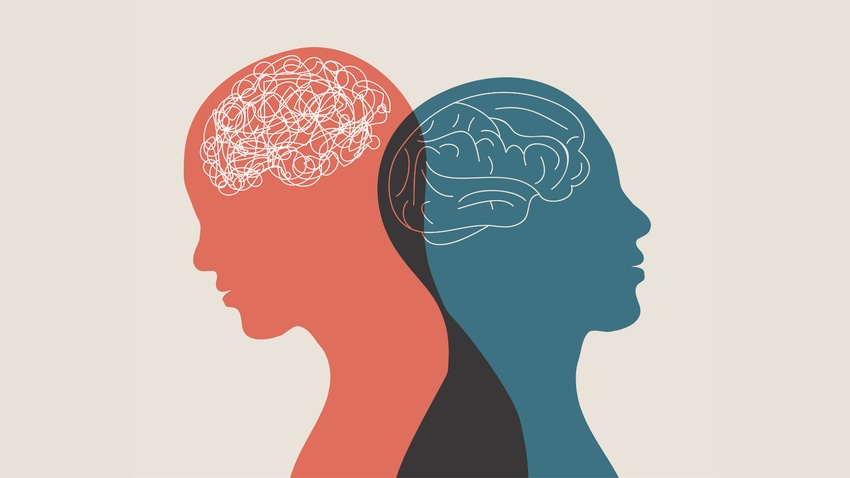AI Helps Neuroscientists Understand Depression Better
Researchers used large language models to aid in their study of depression

At a Glance
- Researchers developed 'explainable AI' to understand AI decisions and identified distinct brain patterns for depression.
AI is helping neuroscientists decipher the enigmas of depression, marking the expanding use of large language models to delve into the intricacies of the brain.
Researchers have built algorithms for explainable AI, which enable humans to grasp the decision-making mechanics of AI systems. The approach helped the team discern the distinct brain patterns that set apart a “depressed" brain from a "recovered" one, according to a recent paper. Studying the brain can also provide insights for AI research.
“Much of the work on AI right now is actually inspired by brain research and how brains work,” Erin Solovey, an associate professor in the Department of Computer Science at Worcester Polytechnic Institute, who was not connected to the recent research, said in an interview.
“At the same time, many of the computational methods being developed in the fields of AI and machine learning are valuable for finding patterns in large, complex datasets. These algorithms can be used to identify brain activity patterns that are associated with particular cognitive processes or health conditions in ways that had not previously been possible.”
Going deep into the brain
As part of the AI-assisted study, researchers from Emory University, Georgia Institute of Technology, and the Icahn School of Medicine looked at the brain activity of patients with deep brain stimulation (DBS), a treatment involving brain-stimulating electrodes. They found a unique brain activity pattern in patients recovering from severe depression. This identifiable pattern, called a biomarker, indicates disease recovery.
DBS is like a brain pacemaker, using electrodes to send electrical pulses. It is common for Parkinson's but still new for depression. The study gathered data from these electrodes to see how patients respond. The data helps doctors adjust and improve the treatment for each person.
The researchers also used AI to detect shifts in brain activity that corresponded with patients' recovery. The team also found that as patients' depression lessens, their facial expressions change. Their AI tools spotted facial patterns showing a shift from illness to recovery, which were more accurate than current clinical scales.
“This approach enabled us to track the brain’s recovery in a way that was interpretable by the clinical team, making a major advance in the potential for these methods to pioneer new therapies in psychiatry,” wrote Sankar Alagapan, a Georgia Tech research scientist and lead author of the study.
AI for brain research
The study on depression is part of a growing trend of research initiatives utilizing AI to delve into the brain's mechanics. One recent success in theoretical neuroscience compares brain activation and the GPT model.
Studies show that the neural processing of language shares some important principles with the large language model, said Donald Li, a visiting assistant professor at Johns Hopkins University, who studies computational neuroscience and who was not involved in the recent study, in an interview.
“For example, both the brain and the GPT are predicting what word will come next when receiving input,” he added. “We are not able to understand such principles of neural processing of language without the help of the AI model. Another success in application is reconstructing high-resolution images from brain activity. ‘Mind-reading’ in high resolution is considered a very difficult task, but with AI help, we can reconstruct pretty well what someone has seen by recording their brain activity through fMRI.”
The brain is like a 'black box' because we know so little about it, according to Li.
Many AI systems are like 'black boxes' because we don't fully understand how they operate. He said researchers can use AI as a black box to mimic the brain.
“Without the AI system, scientists are left with very few tools to simulate high-level brain areas,” he added. “That is because we do not have many ways to manipulate the human brain, but we can easily manipulate the AI system.”
For instance, Li said researchers cannot ethically damage a human brain to see its effects, but they can remove artificial neurons in AI and observe its behavior.
“We can then study how different goals of training and training data will shape the artificial neural network, and we can then compare those systems with the human brain and look for similarities and differences,” he added.
“In addition, we do have full control of the goal of learning and the learning data that the system has accessed. We can then study how different goals of training and training data will shape the artificial neural network, and we can then compare those systems with the human brain and look for similarities and differences.”
Future advances could benefit both AI and neuroscience research. Algorithms can spot irregularities, find patterns, and handle noisy data, Solovey said.
“I am particularly excited about the way that hardware is advancing that allows us to sense brain signals in the real world in less intrusive ways than in the past,” Solovey added. “In addition, the large datasets are leading to AI models that can classify particular cognitive processes in real-time. This could lead to AI tools that enable us to monitor health and well-being and to enhance human performance.”
About the Author(s)
You May Also Like


.jpg?width=700&auto=webp&quality=80&disable=upscale)
.jpg?width=700&auto=webp&quality=80&disable=upscale)
.jpg?width=700&auto=webp&quality=80&disable=upscale)
.jpg?width=300&auto=webp&quality=80&disable=upscale)
.jpg?width=300&auto=webp&quality=80&disable=upscale)
.jpg?width=300&auto=webp&quality=80&disable=upscale)

.jpg?width=300&auto=webp&quality=80&disable=upscale)